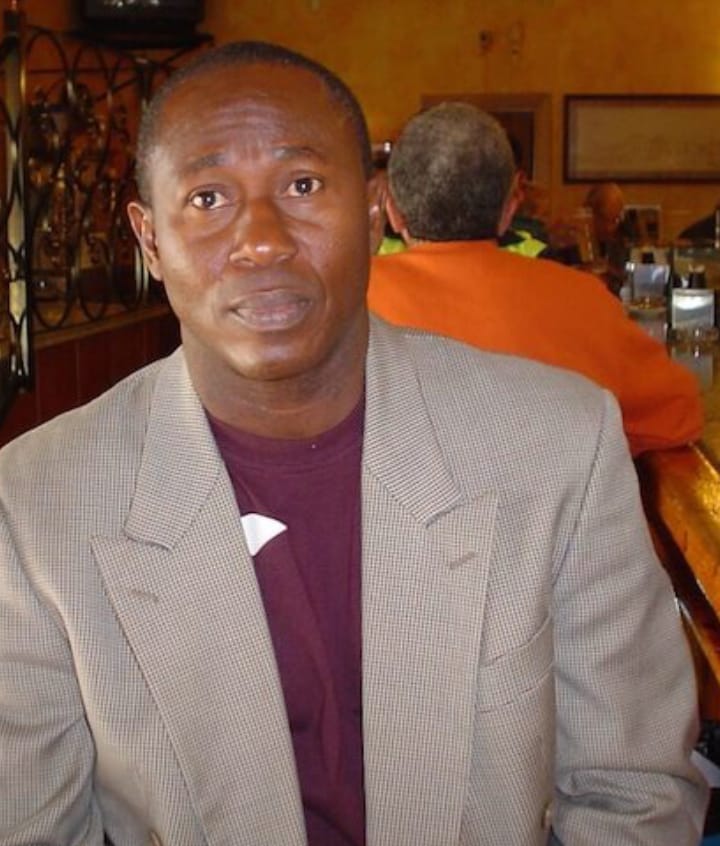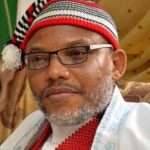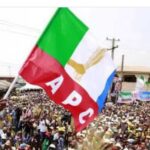Mr Shedrack Ogboru, Managing Director, Macobarb International Limited, opens up after court ruled on his company’s case against NLNG
How I was forced to go to court
I thank the press for showing steady interest in this case between our company, Macobarb International Limited, and NLNG, as a result of series of contract breaches by the NLNG. Macobarb had executed over 60 jobs for the NLNG under a lower category until the NLNG found us worthy of upgrading and upgraded Macobarb International Limited to level that Julius Berger operates, and the contract that led to this court case was our first job at this elevated category.
This particular job caused provocations. We did not know that our promotion and bigger job attracted anger from unknown quarters. When the crisis started, we pleaded to NLNG for boardroom resolution or to arbitration. It was strange that the same NLNG that promoted us to this high category called EPC (engineering designs, procurement, and construction) began to ask us to go to court instead of resolution.
On this contract, we worked professionally, but out of nowhere, the NLNG would not pay us as stipulated by the contract. Unfortunately for the NLNG, the contract provides for remedy if any party should keep the contract idle at any point in time. At the same time, the contract forbids us (contractor) from removing our equipment on site or moving away our key workers without express and written authorization from the Contract owner (NLNG).
So, the contract holds both parties bound to steady work. But they kept denying us payments, and we pointed this out. We also gave notice of dispute as provided by the contract, so as to sit down and discuss. Instead, they kept asking us to go to court. Now, we realise why they preferred the court. We have seen compromises everywhere. The plot is very clear now.
Painful clauses in the court ruling:
The most painful issue is that against all evidence (49 exhibits) which point to the fact that the NLNG failed to pay, and that Macobarb did its work, the judge in the suit number HC/2013/CS/2022 ruled today, July 16, 2025, that the NLNG did not do anything wrong.
The judge rather imported an extraneous factor to say that we the claimants mismanaged the loan a bank gave us to execute the contract. Evidence was clear that we performed, payment certificates were raised, but NLNG declined payment each time because one officer who was not the principal signatory and who was not in the field would decline signature.
The loan or its application was never an issue in court; none of the parties brought it up. The judge refused to accept that NLNG’s failure to pay when they should pay was the reason the contract failed, but ruled that it failed because Macobarb allegedly mismanaged the loan. It was clear he was looking elsewhere to find what made the contract to fail whereas the reason was staring at him in the face right there. No evidence was led to such conclusion.
The judge completely ignored the crux of the matter which is that we (the Claimants) showed that the NLNG, in their failure to pay Macobarb the first N32m milestone (which they did not contest in court), and paid only N8m in two years, we showed that payment denial was the cause of the contract stalling. We showed this to the NLNG during meetings and we showed it to the court. Why the Honourable justice refused to see this remains a shock to us the claimants. It was easy for any court to see from all evidence adduced that contract was awarded (albeit properly), execution began smoothly with both parties acting accordingly, payment milestone was reached, payment request was made and endorsed by the Contract Holder who was the person to decide if work was done as requested or not. Instead, NLNG paid only N8m out of N32m. Crisis set in at this point. Why was this difficult for any judge to see and decide? All this was because one signatory always refused to sign. NLNG executive management at a meeting to resolve issues instructed in minutes of meeting number 17 dated July 9, 2015 (more than one year after commencement of contract) that cancellation of the contract was not an option for NLNG, and that the NLNG should pay Macobarb the money owed them especially money spent to import foreign items of the contract. Did the NLNG pay this? No! Did the court see where NLNG paid this? No! Yet, the judge went ahead to rule that the NLNG did nothing wrong.
The judge ignored all these facts. The most terrible thing is that this evidence (Exhibit YJ-40) which is the schedule of payment the parties agreed on how the NLNG would pay for the foreign component; for example, if we pay 50% of foreign cost in foreign currency, NLNG would pay us 50% of same value in local currency, and so on. Did we pay the 50% to foreign manufacturers? Yes! Did NLNG pay their own 50%? No! Yet, the Judge ruled that NLNG did nothing wrong.
Standby cost is not Stand-down cost:
The next was that the judge ignored our claim for Standby Cost which was what we had brought to the NLNG (exhibit YJ-2) on July 13, 2025, showing that having kept Macobarb idle for these months, that the NLNG must comply by paying Standby Time Cost. We asked them to use the Standby Cost rates of the contract to calculate our Standby Cost payment. The NLNG refused to pay this, and the judge ruled in their favour. NLNG wrote to deny responsibility of the cost and the judge agreed with them. The NLNG wrote to us through someone not known to the contract.
The judge erroneously called it Stand-down time cost, and ruled that it did not exist in the contract whereas what we claimed was Standby Cost. He used that to arrive at his conclusion that the NLNG did nothing wrong, and that the innocent contractor who did everything to do the job was the one that did everything wrong by allegedly mismanaging the loan we got for the job. We got the job, we got the loan, we did the job, we delivered the job, but the NLNG through insider-things failed to pay. This is what affected the job. But the judge chose to see what did not exist to say those were what frustrated the contract, not NLNG’s constant payment denial. That is the strangest thing ever in any court.
The only thing that made the bank to be mentioned in the court was to show the effect of NLNG payment denial; that Macobarb was owing the bank and needed the NLNG payment to help defray the bank loan. So, we asked the court to compel the NLNG to pay us a quantum amount so we could pay the bank and others we owe.
Wrong to declare the expert witness an interested party
Another shocker we got from Honourable Justice Chinwendu Nwogu was his expunging the evidence of the expert witness, the forensic audit expert who was brought simply to show the professional calculations of our claims of Standby Cost of equipment and personnel which the contract expressly permits us to serve the NLNG.
According to lawyers, the judge was wrong to expunge that evidence. From the beginning of the dispute, Macobarb had been bringing up claim of what the NLNG owed them, but NLNG never brought an alternative amount to allow any arbitrator compare and decide. They never contested the amount or said it was wrong or too big or too small.
The expert witness merely confirmed what Macobarb computed from the rates contained in the contract such as overtime rate or standby rate. For instance, standby rate is one third of daily rates. Its simple. Standby situation is a well-known situation in the oil and gas industry especially for a contract that has time limit. If the contractor causes stand-down, you pay in many ways including adding more men and equipment at your cost to meet agreed time. And if the awarding company causes the delay, and you brought a notification to alert their management, the time lost is computed and paid for by the Contract Owner. This is covered by section 7 sub section 5.11, contract would be extended by the time lost and the costs of equipment and workers involved. We notified the NLNG and they did not bring any counter in court.
The expert witness was only to cross check and confirm whether our computation was completely correct. During cross examination of the expert witness, the defence counsel tried to insinuate that the expert witness was an interested party, but he defended the accusation by showing where he saw more things to claim but failed to claim them because he had no interest in the matter and they were not included in his brief.
Denial of Record of Proceedings:
The court denied us Record of Proceedings which we would have quoted in our final address or in trying to go to appeal. We applied immediately after trial before final address but to this moment, we were not availed of it.
The shocking thing is that Justice Nwogu, without any evidence to the contrary ruled that the expert witness is an interested party to the case. Next, he ruled that expert witness evidence was brought in during the pendency of the case. This too is shocking. Its on record that the expert witness came into the matter in April 2018 when the case was not pending before Justice Nwogu. That was what we used in filing our first case which was struck out. That was what the expert computed for us to go to court. What he brought before Justice Nwogu in 2022 is merely an update and till now. If you go to the file of the case, you will see when it was N957m. He did not jump into the case in the matter. He prepared the evidence before the case went to court. He updated it in February 2024, which is what the judge referred to as being in the pendency of the case. The evidence was dated 2018. Justice Nwogu ruled that the evidence should be expunged.
I am worried that a professional (expert witness) has been declared an interested party whereas lawyers that participated in the case for whichever party were also professionals hired by different parties. Are professionals such as lawyers, accountants, surveyors, architects, doctors, etc, not qualified to give evidence in court and face cross examination?
The forensic auditor is qualified by law to carry out the service we paid him to do; he is from the middle belt while I am from the Niger Delta. His evidence is supposed to help the entire court, both parties and the judge to illuminate the case. That is why he can be questioned by both parties and/or the judge to provide professional clarity in the computation. He was qualified by law to take such jobs, and he must be paying tax as a practitioner. It is strange that he is called an interested party whereas the counsels were not declared interested parties. They all are rendering professional services, whether their client lost or won.
Also, the defendants have right to bring another forensic auditor to counter the expert witness. He was referred to me by a lawyer. So, the issue of being an interested party should not arise at all, and the issue of the expert witness coming into the matter in the pendency of the case does not arise at all, except the judge is saying that professionals should not appear in his court to give evidence, else they would be declared ‘interested parties?
July 16, 2025



